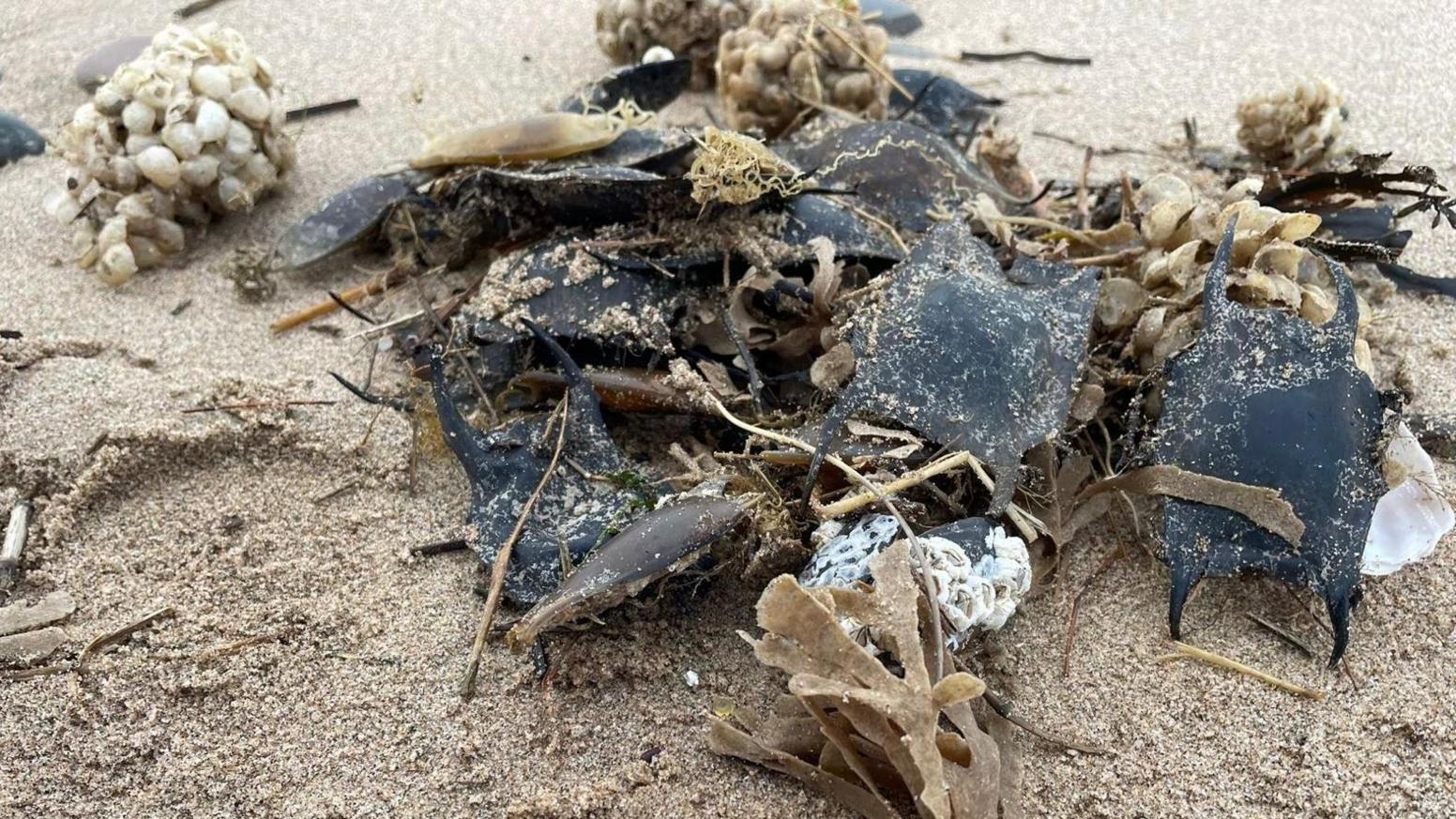'Shark surveying helped improve my mental health'
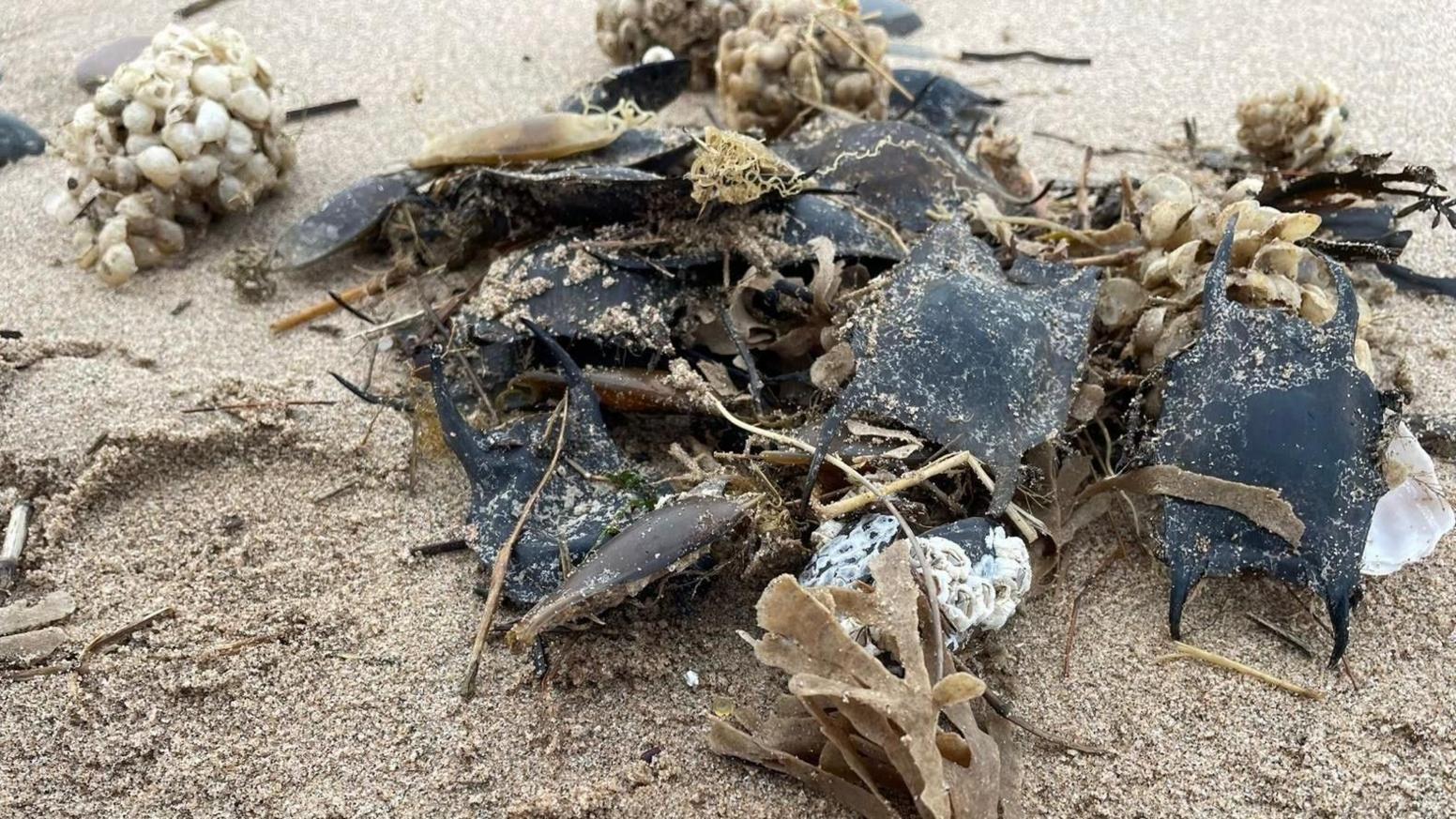
Egg cases, including rays and catsharks, have washed up on Morecambe Bay
- Published
Volunteers who have been helping scientists to understand more about our oceans said connecting with nature had transformed their lives.
Members of the Lancashire Wildlife Trust's The Bay Group search for shark egg cases on the shoreline in Morecambe Bay.
Their findings provide a valuable insight into more than 40 different shark species that are found in UK waters.
One of the volunteers, Ras Thomasen, said his mental health had improved as a result of participating in the programme.
"It really struck something in me," he said.
"It was that good that after a few weeks my therapist said 'you can stop your therapy now and go to the Bay weekly'... and that's two-and-a half-years ago."
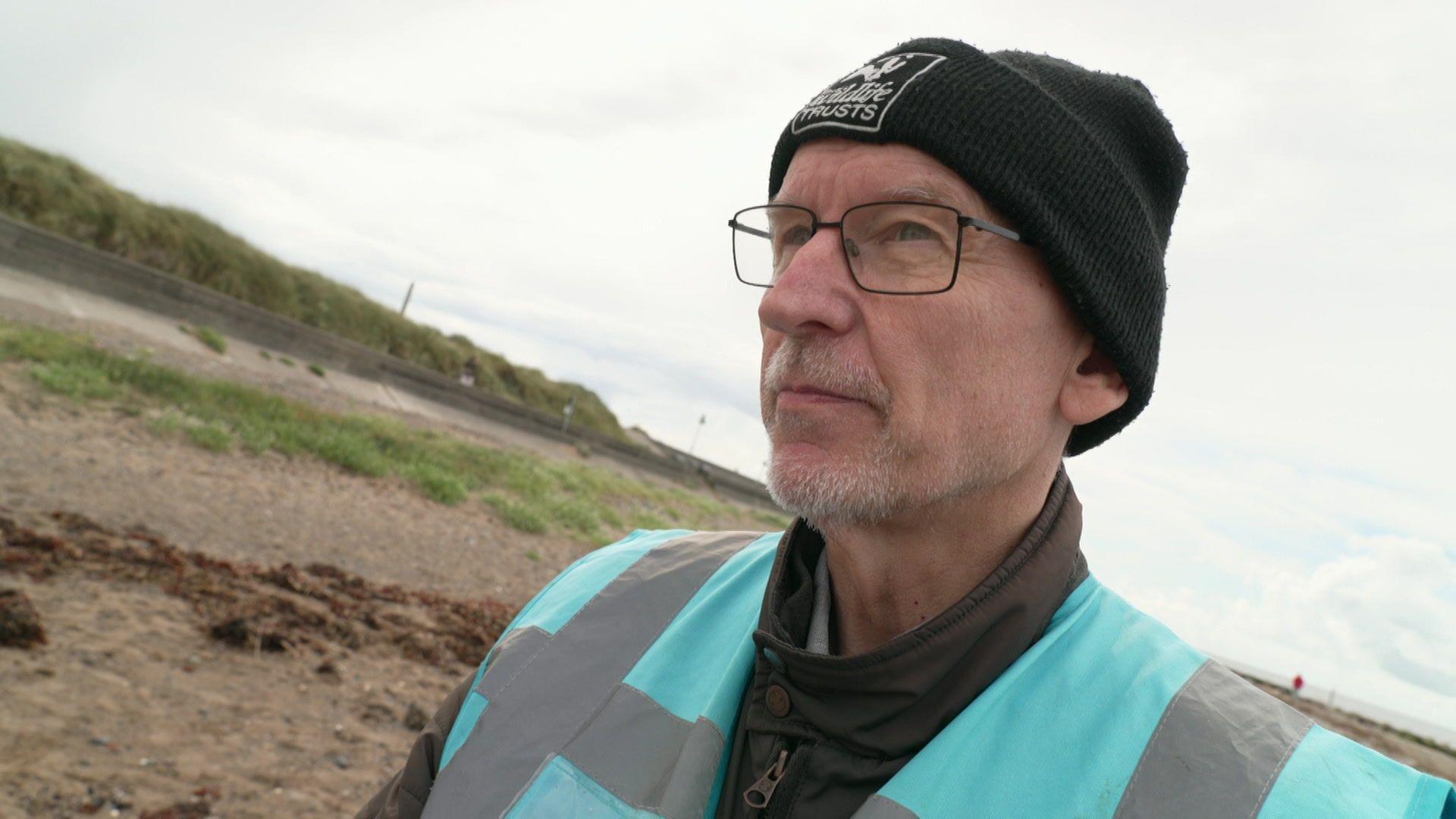
Ras Thomasen said the scheme had made a big impact on his life
Fellow volunteer Heather Neal added: "It's just wonderful because I've had so many problems over the years.
"I had to leave work early because I had to look after mum and so it's just wonderful. It's just everybody's so nice."
The Morecambe Bay group recovered 30% of all egg cases found across the UK last year.
The volunteers take photographs of the egg cases and upload them to the Shark Trust's website.
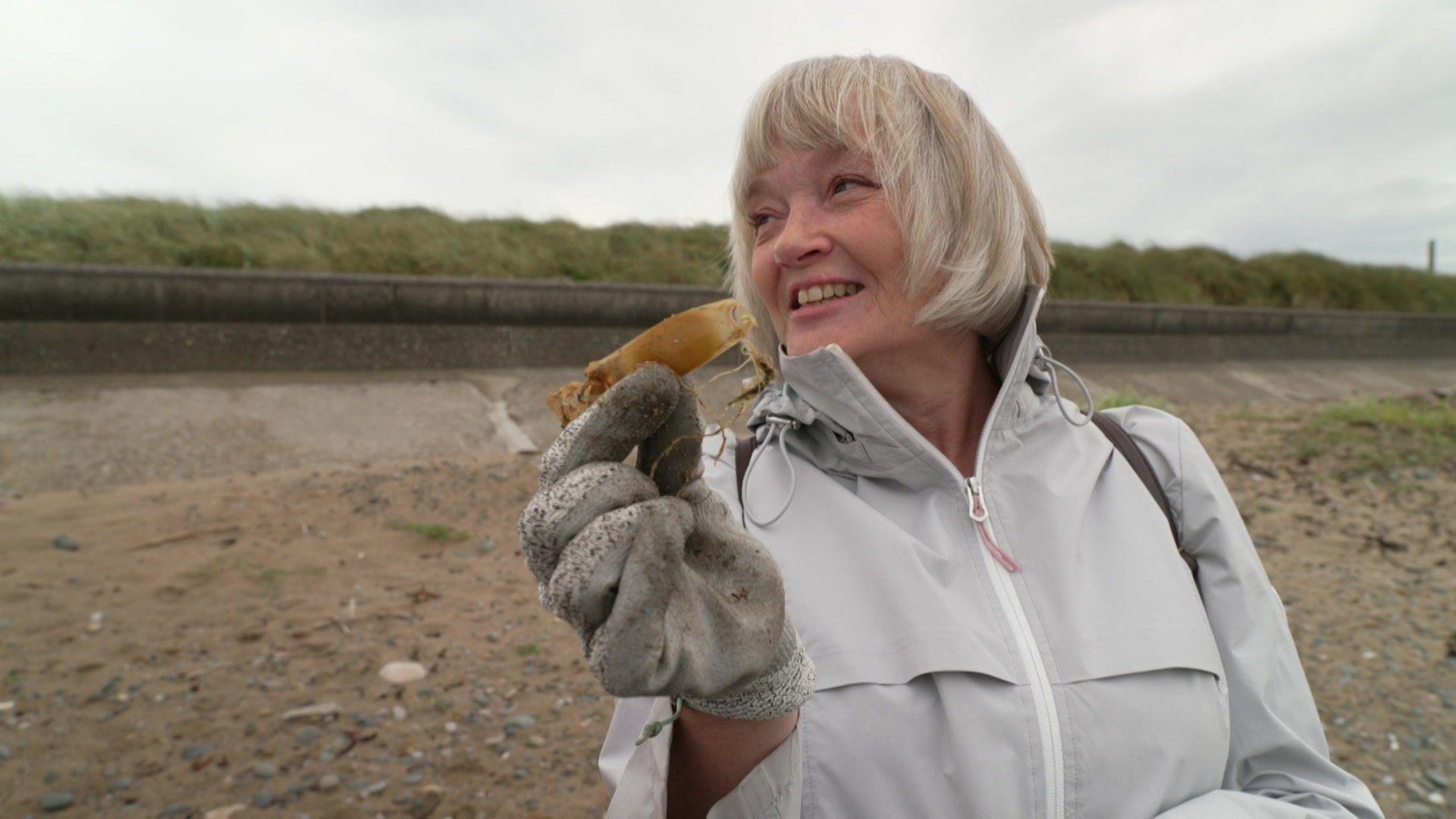
Heather Neal said she had made many friends since joining the group
The cases are rehydrated, categorised and counted - which helps scientists better understand the marine species.
Mike McDonnell, who runs the group, said getting into nature had helped members make valuable connections and gain in confidence.
"We've got people that maybe had quite severe anxiety, maybe hadn't left the house for a couple of years, especially coming off the back of the pandemic, forming friendships," he said.
Lancashire Wildlife Trust's The Bay Group recently won a national award for its work and was recognised at the Marsh Volunteer Awards for Marine Conservation.
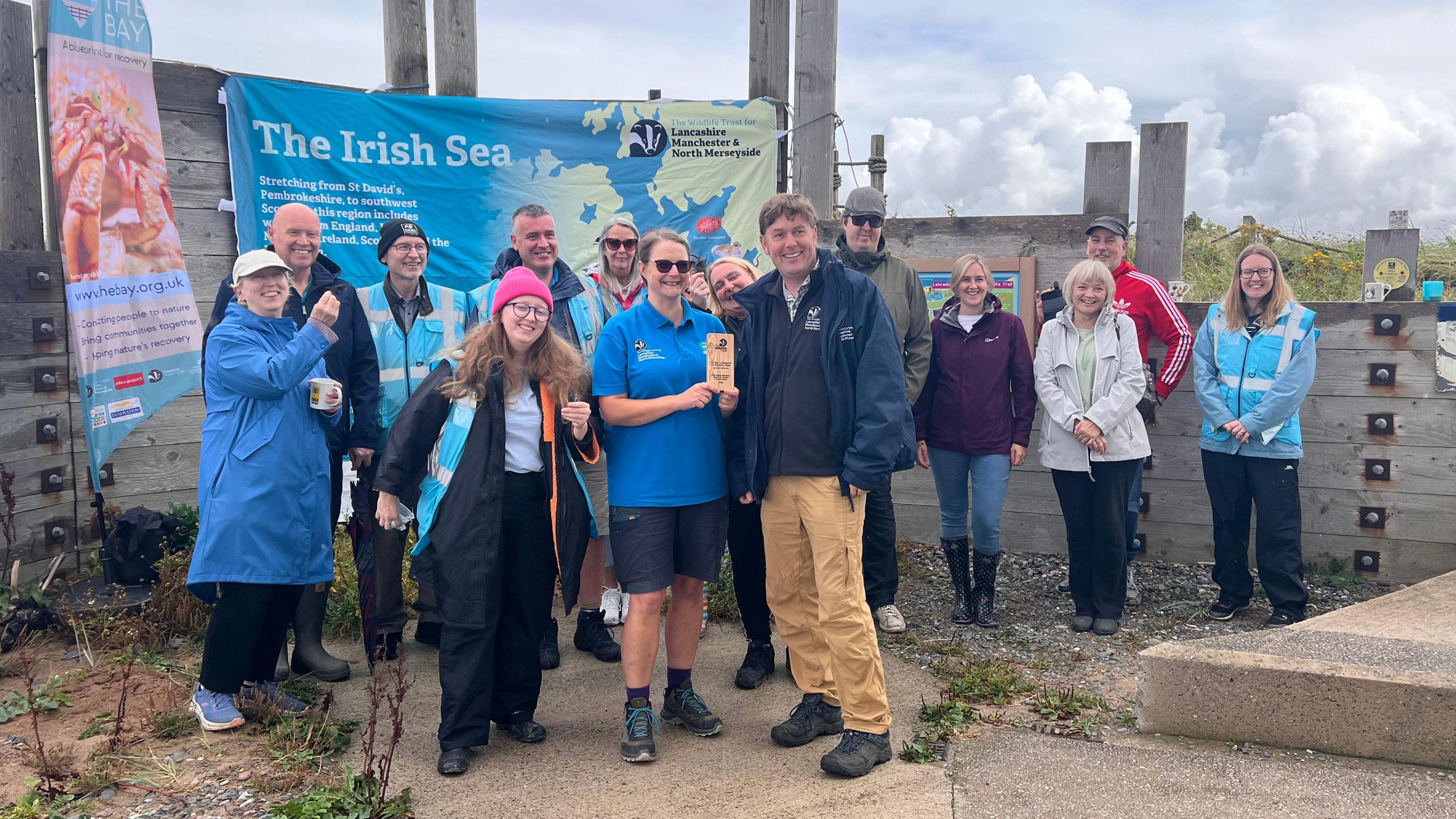
Volunteers celebrate their recent success in the Marsh Volunteer Awards
Tom Burditt, chief executive of Lancashire Wildlife Trust, said the volunteers were helping to collect an "amazing amount of knowledge about the wonderful wildlife species that are living out here".
The volunteers said they wanted to step up conservation efforts to protect habitats and retain their title.
Get in touch
Tell us which stories we should cover in Lancashire
Listen to the best of BBC Radio Lancashire on Sounds and follow BBC Lancashire on Facebook, external, X, external and Instagram, external. You can also send story ideas via Whatsapp to 0808 100 2230.
Related topics
- Published10 August
